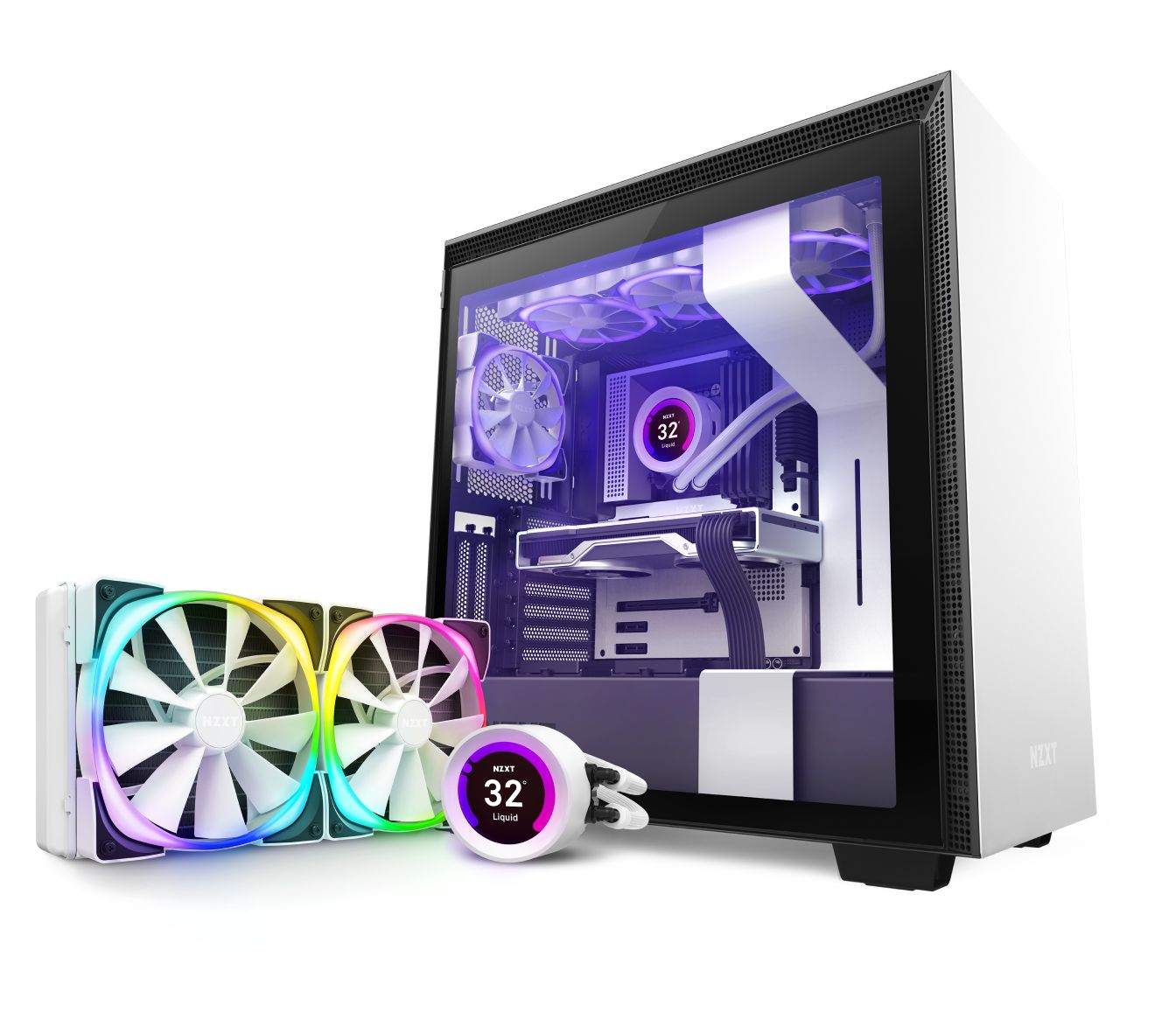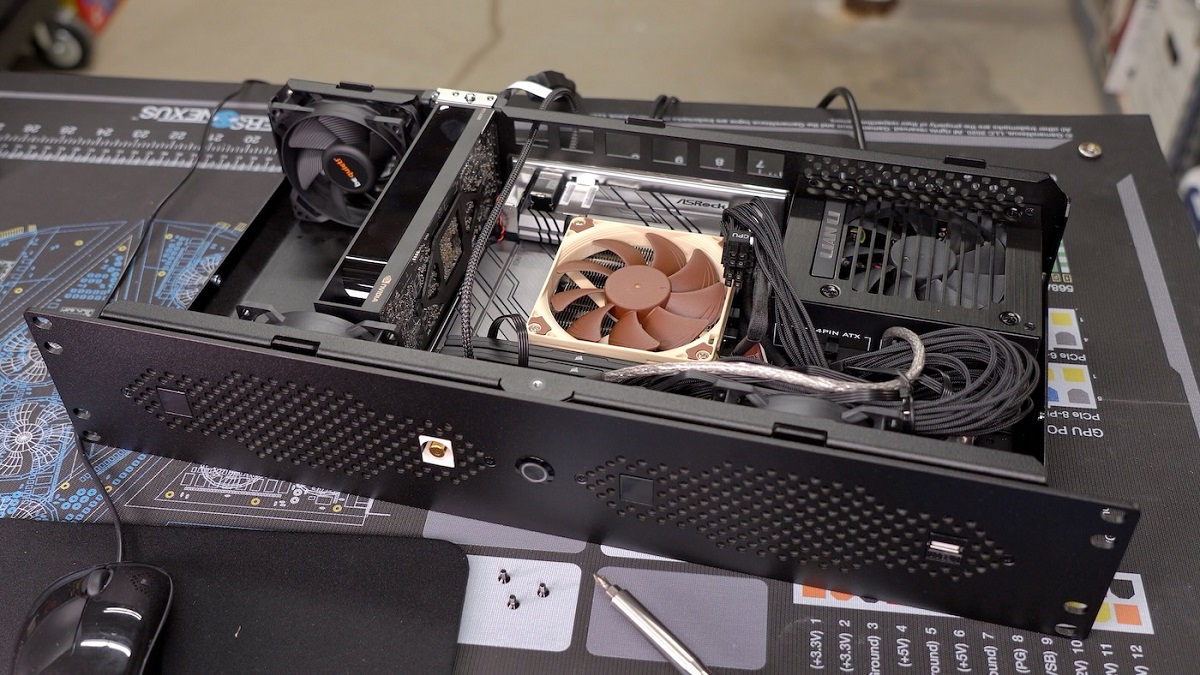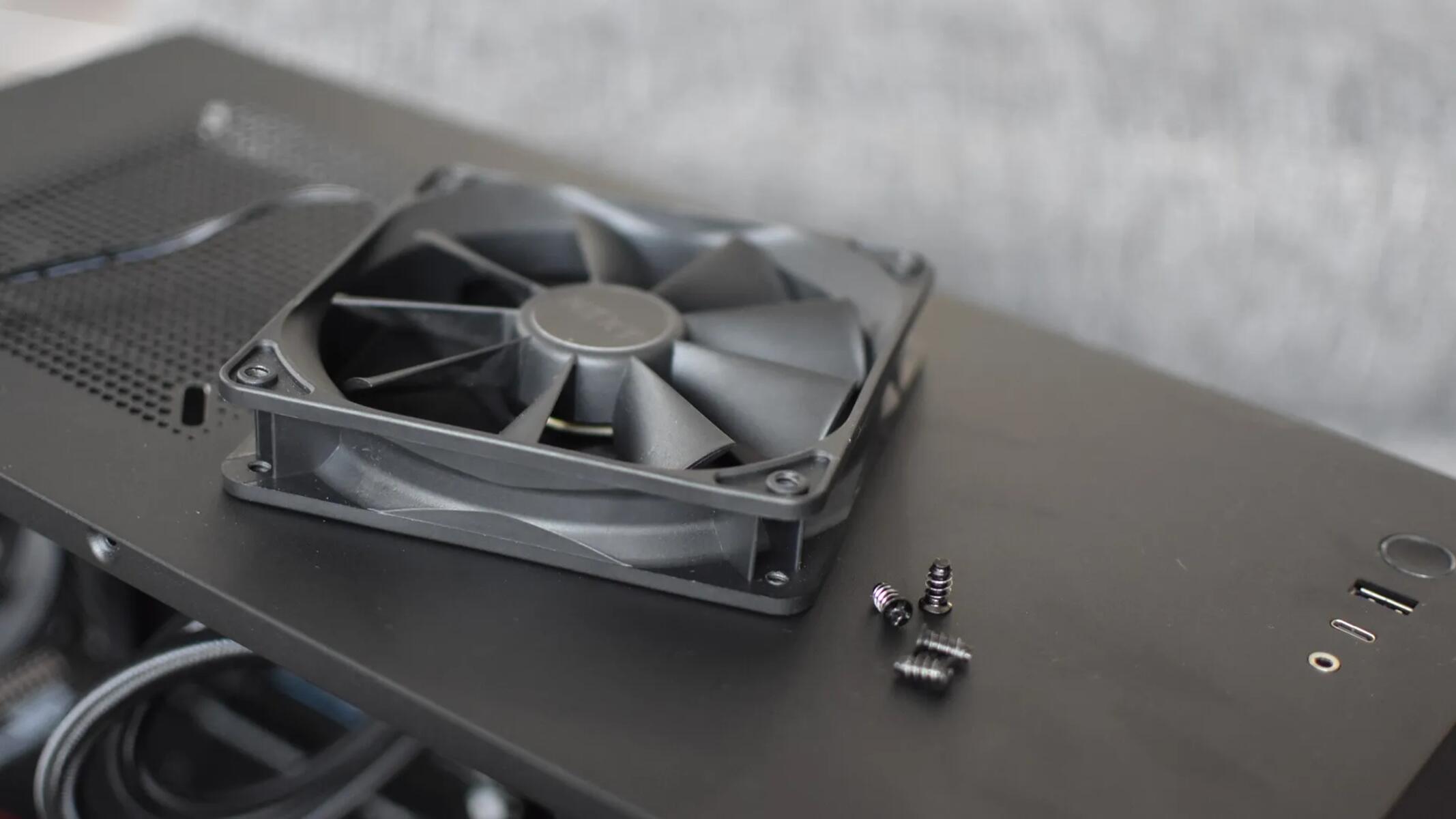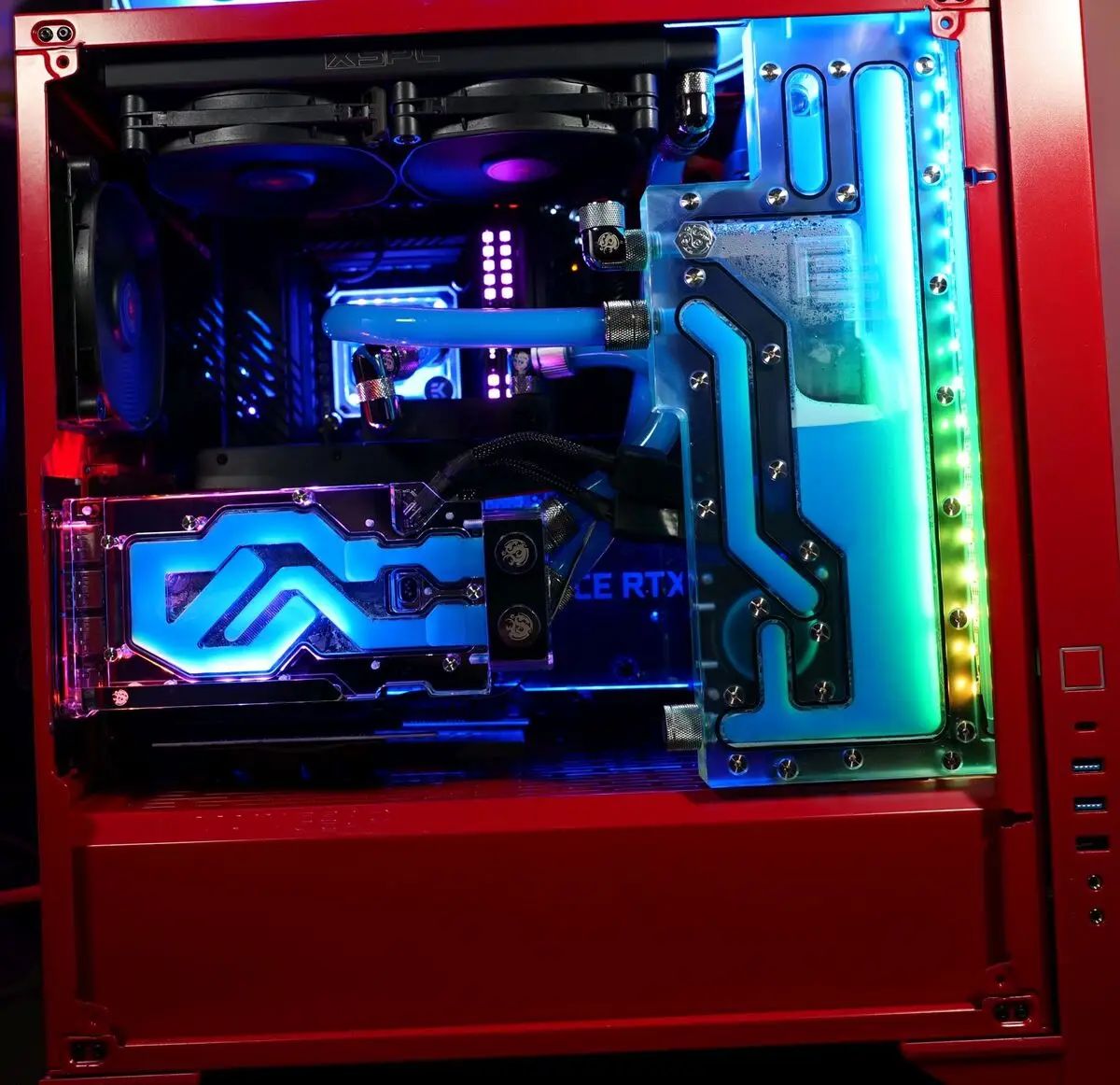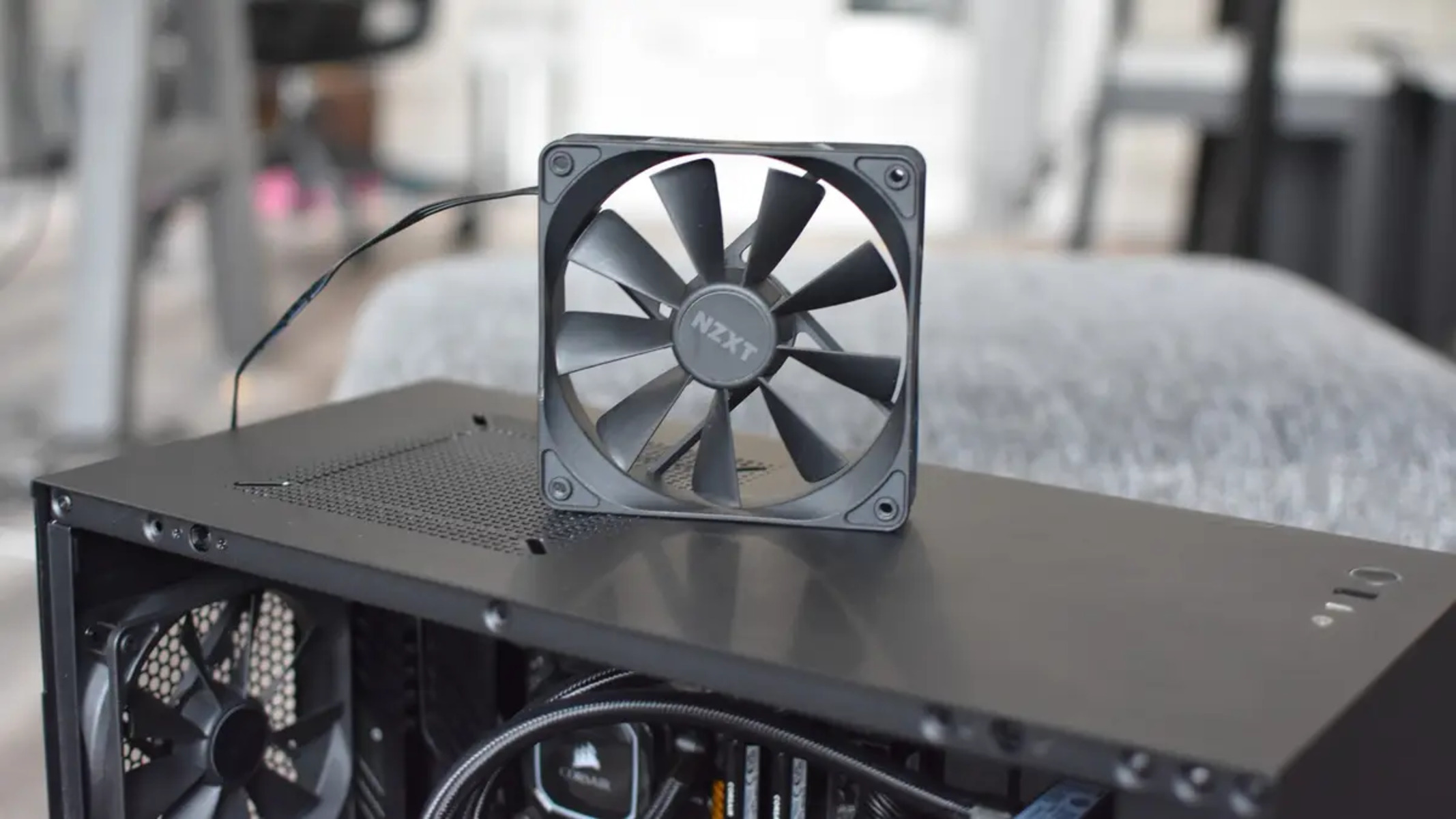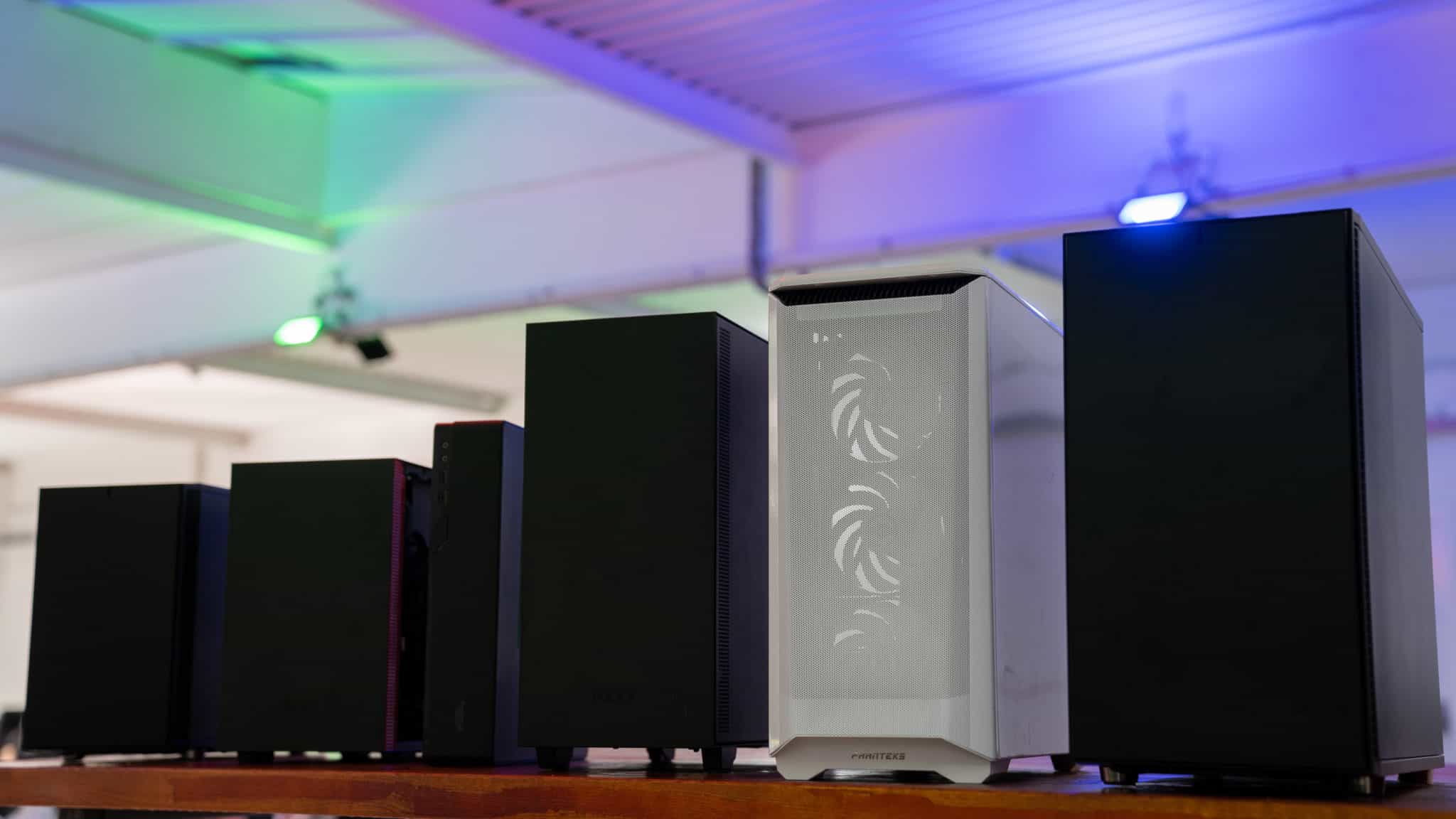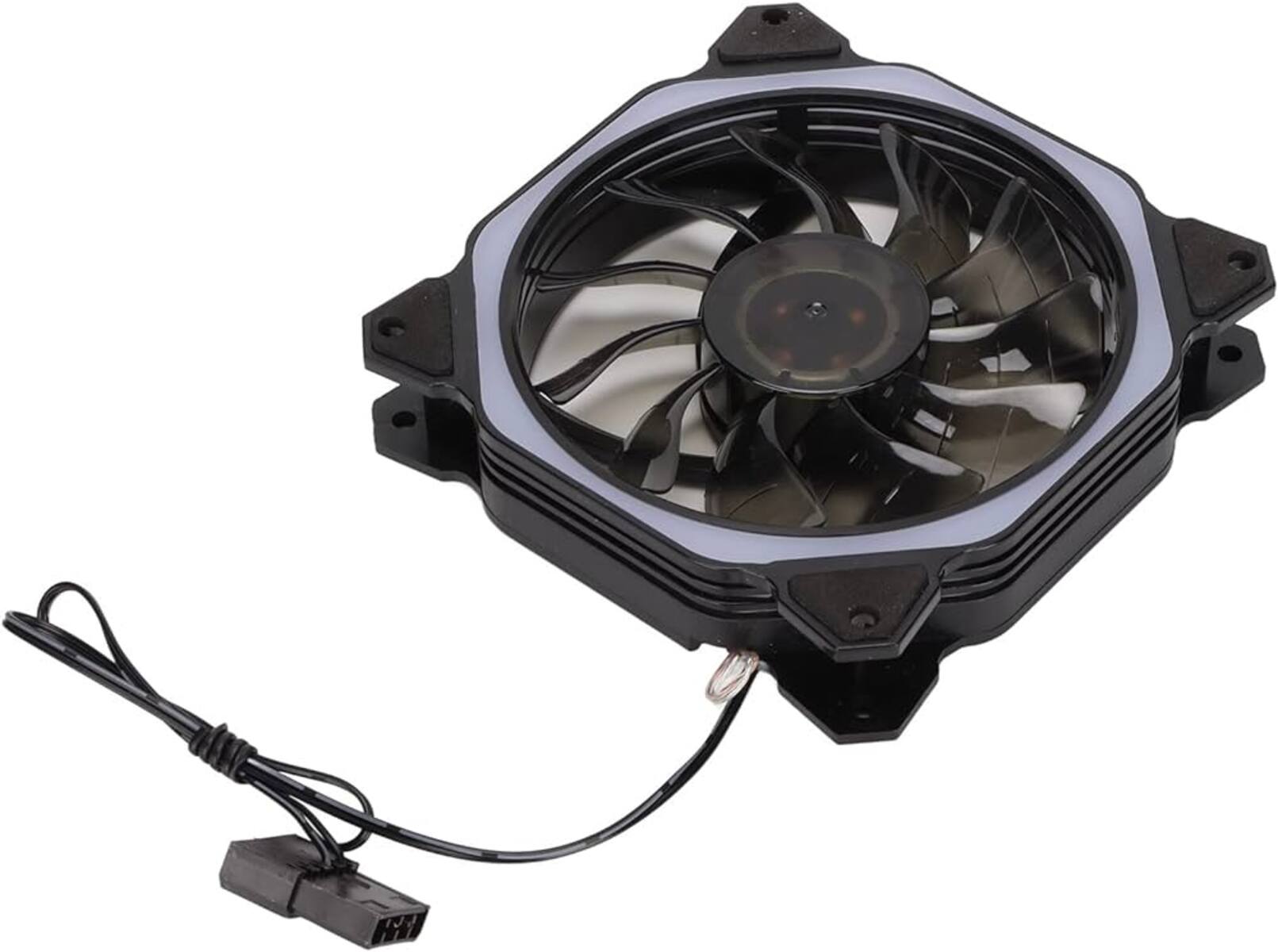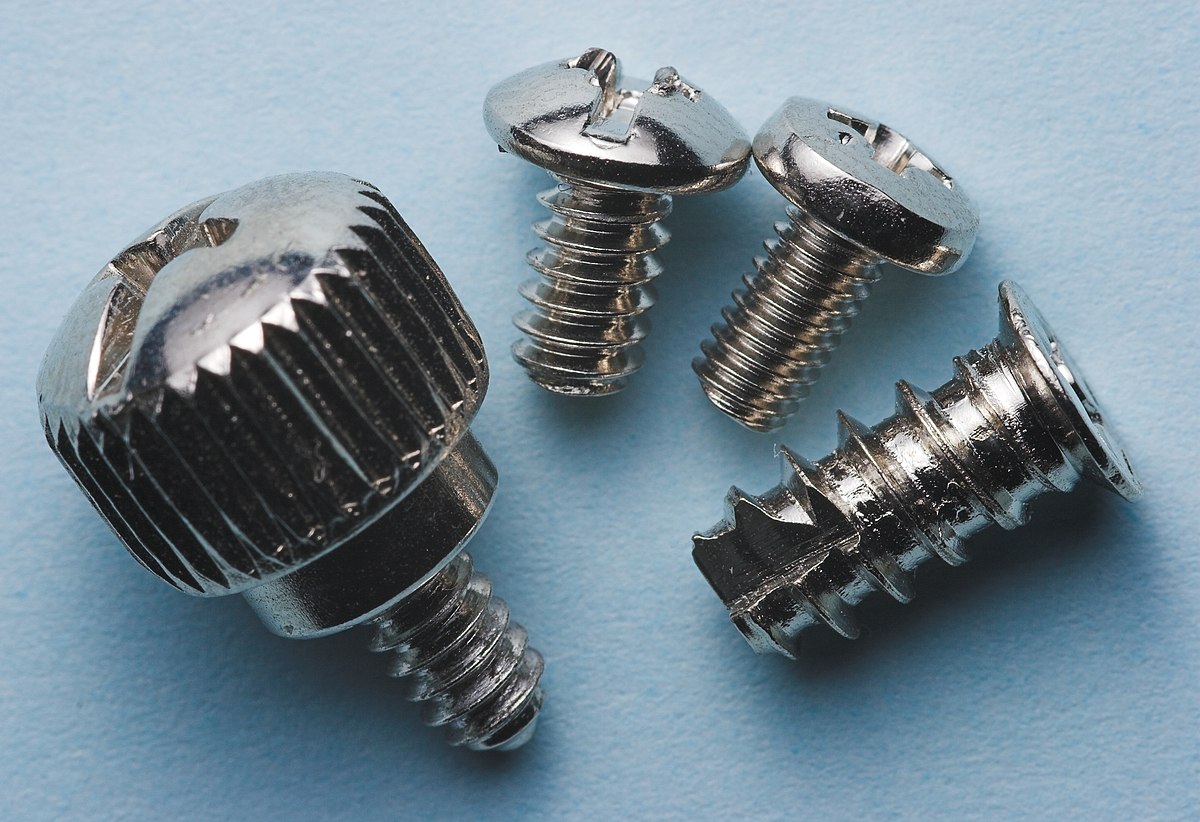Introduction
When it comes to keeping your computer running smoothly and efficiently, proper cooling is essential. Overheating can cause damage to your components, leading to performance issues and even system failure. That’s where PC case fans come in. These small but mighty devices help to circulate air inside your computer case, dissipating heat and ensuring a cool and stable operating environment.
PC case fans play a crucial role in maintaining the overall health and performance of your system. By effectively cooling your computer components, they help prolong their lifespan and prevent thermal throttling, which can negatively impact your computer’s performance. Whether you’re a casual user or an avid gamer, investing in high-quality case fans is essential to ensure your computer stays cool under any workload.
One important aspect to consider when purchasing a PC case fan is its size. PC case fans come in various sizes to accommodate different computer cases and cooling requirements. Each size offers its own advantages in terms of airflow, noise levels, and compatibility, so it’s crucial to choose the right size for your specific needs.
In this article, we will explore the different sizes of PC case fans available in the market, including the popular 80mm, 120mm, 140mm, and 200mm options. We will also discuss other sizes and accessories that can enhance your cooling setup. By the end of this article, you will have a better understanding of what size PC case fan is ideal for your computer.
What is a PC case fan?
A PC case fan is a component installed inside a computer case to circulate air and facilitate the cooling process. It is designed to expel hot air generated by the components, such as the CPU, GPU, and power supply, and bring in cool air from outside the case. This constant air movement helps regulate the temperature inside the computer case and prevent overheating.
PC case fans typically consist of a frame, blades, and an electric motor. The frame secures the fan in place and provides stability, while the blades rotate to create airflow. The electric motor powers the rotation of the blades, which generates air movement. Most PC case fans also have connectors to be plugged into the computer’s motherboard or fan controller, allowing for speed control and monitoring.
Apart from cooling the components, PC case fans also help to eliminate the buildup of stagnant air, reducing the risk of dust accumulation and improving overall system reliability. Dust can act as an insulator, causing the components to heat up even more. By keeping the air flowing, PC case fans contribute to better dust management and contribute to the longevity of the computer system.
Modern PC case fans are designed to be efficient and relatively quiet. Many fans feature advanced bearing technologies, such as sleeve bearings, ball bearings, or fluid dynamic bearings, which reduce friction and noise. Additionally, some fans come with integrated RGB lighting, adding a touch of aesthetic flair to your computer case.
When choosing a PC case fan, it’s important to consider factors like airflow, noise levels, and power consumption. High airflow fans move more air and are typically used for more demanding applications, such as gaming or overclocking. Noise levels, measured in decibels (dB), indicate how quiet or loud a fan will be during operation. Lower dB values are desirable for a quieter computing experience. Lastly, power consumption refers to the amount of electrical power the fan requires to operate efficiently.
Now that we have a better understanding of what a PC case fan is, let’s delve into the importance of these fans in maintaining optimal computer performance and explore the different sizes available.
Importance of PC case fans
PC case fans play a crucial role in maintaining the health and performance of your computer system. Here are some key reasons why they are important:
Temperature Regulation: The primary function of PC case fans is to regulate the temperature inside the computer case. As the components of a computer generate heat during operation, it is crucial to dissipate that heat to prevent overheating. PC case fans help to circulate cool air into the case and expel hot air, ensuring that the components stay within their optimal operating temperature range.
System Stability: Overheating can cause several issues, including system instability and unexpected shutdowns. When components reach excessive temperatures, they can throttle their performance, leading to decreased efficiency and sluggishness. PC case fans help to prevent these issues by keeping the system cool and maintaining stable performance even during demanding tasks.
Component Lifespan: High temperatures can significantly reduce the lifespan of computer components. Continuous exposure to heat can cause deterioration and premature failure of sensitive parts such as the CPU, GPU, and hard drives. By effectively cooling the system, PC case fans help to extend the lifespan of these components, saving you from costly repairs or replacements.
Dust Management: PC case fans also contribute to dust management within the computer case. As air flows through the case, it helps to prevent the buildup of dust particles on the components. Dust accumulation can act as an insulator, trapping heat and reducing the cooling efficiency. By regularly circulating fresh air, PC case fans help to minimize dust accumulation and maintain better air quality inside the case.
Noise Reduction: While some components, like the CPU cooler or GPU fans, can generate noise, PC case fans can help dissipate this noise. They provide additional airflow to cool these components, reducing the need for them to work at higher speeds and thus minimizing the overall noise level of the system. Investing in high-quality and quiet PC case fans can significantly contribute to a more enjoyable and peaceful computing experience.
Customizability and Aesthetics: PC case fans come in various designs, including different colors, LED lighting, and even RGB customization. These features allow users to customize the appearance of their computer case and create visually appealing setups. This is particularly beneficial for gamers or enthusiasts who want their PC to reflect their personal style and preferences.
As you can see, the importance of PC case fans cannot be overstated. They are not only essential for temperature regulation and system stability but also contribute to component longevity and overall noise reduction. In the next section, we will explore the different sizes of PC case fans available in the market.
Different sizes of PC case fans
PC case fans come in various sizes, each with its own advantages and suitability for different computer cases and cooling setups. Let’s explore the most common sizes available:
80mm PC case fans: One of the smallest sizes available, 80mm fans are commonly used in compact cases or where space is limited. They are known for their high RPM (rotations per minute) and airflow, making them suitable for providing concentrated cooling to specific components such as the CPU or GPU. However, due to their smaller size, they may produce more noise compared to larger fans.
120mm PC case fans: The 120mm size is the most popular and widely used option for PC case fans. They strike a balance between airflow, noise levels, and compatibility. They are often found in mid-sized and full-sized computer cases and are versatile enough to provide effective cooling for various components. Additionally, there is a wide range of models available, including quiet and high-performance options.
140mm PC case fans: The 140mm fans are known for their larger blades, resulting in improved airflow with lower noise levels. These fans are typically found in larger computer cases and are excellent for providing efficient cooling to both the CPU and GPU. They are ideal for users who prioritize quieter operation without compromising on cooling performance.
200mm PC case fans: The 200mm fans are among the largest sizes available for PC case fans. They are commonly used in full-sized ATX cases or cases with specifically designed mounts for such fans. These fans offer excellent airflow and cooling capacity, making them suitable for high-performance systems or those with multiple components generating significant heat.
Aside from these common sizes, there are also less frequently used options such as 92mm, 140mm slim, and 180mm fans. These sizes are often used in specialized cases or for specific cooling requirements. It’s essential to check the compatibility and available mounting points in your computer case before selecting a fan size.
To enhance the cooling performance and efficiency of PC case fans, various accessories are available, such as fan grills, filters, and fan controllers. Fan grills help protect the fan blades and prevent accidents, while filters can help prevent dust buildup. Fan controllers allow for manual control of fan speeds, allowing users to balance cooling performance with noise levels based on their preferences.
Now that we have explored the different sizes of PC case fans, it’s important to choose the right size for your computer case and cooling requirements. In the next section, we will discuss the factors to consider when selecting the appropriate fan size.
80mm PC case fans
80mm PC case fans are the smallest commonly available size in the market. While their small size may limit their overall cooling capacity, they offer some advantages in certain situations.
One of the main advantages of 80mm fans is their high RPM (rotations per minute) and airflow. Due to their smaller size, these fans can spin faster compared to larger fans, resulting in increased airflow. This makes them ideal for providing concentrated cooling to specific components, such as the CPU or GPU, where a targeted cooling solution is required.
However, it’s important to note that the higher RPM can result in increased noise levels. Small 80mm fans spinning at high speeds can produce more noise compared to larger fans. This can potentially be a concern for users who prioritize a quiet computing environment.
80mm fans are commonly used in compact computer cases or situations where space is limited. Due to their smaller size, they are easier to install in small form factor cases or cases with restricted space. Additionally, they can be utilized in niche applications, such as in rack-mounted servers or specialized industrial computers, where compactness and targeted cooling are essential.
In terms of compatibility, 80mm fans generally have standard mounting holes, making them compatible with most computer cases. However, it’s always recommended to check the specifications of your case to ensure compatibility before purchasing an 80mm fan.
When selecting an 80mm fan, it’s important to consider factors such as airflow, noise levels, and power consumption. Higher airflow fans will provide better cooling performance, but they may also produce more noise. It’s important to strike a balance between these factors based on your specific needs.
Overall, 80mm PC case fans offer concentrated cooling in space-restricted environments and for specific components. They are versatile and widely available, making them a viable option for users who require targeted cooling solutions. However, it’s important to consider their potential noise output and ensure compatibility with your computer case before making a purchase decision.
120mm PC case fans
120mm PC case fans are the most popular and widely used size in the market. They offer a balance between airflow, noise levels, and compatibility, making them a go-to choice for many computer enthusiasts and builders.
One of the main advantages of 120mm fans is their versatility. They are suitable for a variety of computer cases, including mid-sized and full-sized cases, and can provide effective cooling for various components such as the CPU, GPU, and motherboard. Their size allows them to generate a decent amount of airflow while operating at lower RPMs compared to smaller fans, resulting in quieter operation.
When it comes to airflow, 120mm fans strike a good balance. They provide sufficient airflow to ensure proper cooling of the components without producing excessive noise. This makes them an excellent choice for users who value both cooling performance and quiet operation.
Another advantage of 120mm fans is the wide range of options available in the market. Whether you’re looking for fans focused on quiet operation, high-performance cooling, or aesthetics, there are plenty of choices to suit your needs. Many manufacturers offer 120mm fans with advanced features, such as fluid dynamic bearings for improved longevity and RGB lighting for customizable aesthetics.
Compatibility is not an issue with 120mm fans, as most computer cases have mounting points specifically designed for this size. This makes installation straightforward and hassle-free. Additionally, due to their popularity, 120mm fans are usually priced competitively, making them an affordable option for most users.
When choosing a 120mm fan, it’s essential to consider factors such as airflow, noise levels, and power consumption. Fans with higher airflow can provide better cooling performance, especially for more demanding applications or overclocked systems. If noise reduction is a priority, opting for fans with lower noise levels, typically measured in decibels (dB), is recommended. Power consumption is also worth considering, as it affects the overall energy efficiency of your system.
In summary, 120mm PC case fans offer a versatile and balanced solution for cooling your computer components. Their popularity, range of options, and compatibility make them a popular choice among users. Whether you prioritize cooling performance, noise reduction, or aesthetics, there is a 120mm fan available to meet your needs.
140mm PC case fans
140mm PC case fans are known for their larger size and ability to provide efficient cooling with lower noise levels. These fans offer several advantages that make them a popular choice among computer enthusiasts and users who prioritize a quieter computing experience.
One key advantage of 140mm fans is their larger blades, which can move more air compared to smaller fans. The increased size allows for greater airflow, resulting in improved cooling performance. With higher airflow, 140mm fans are capable of effectively cooling both the CPU and GPU, making them an ideal choice for high-performance systems.
Despite their larger size and higher airflow, 140mm fans are often quieter compared to smaller fans. This is due to their ability to move a greater volume of air at lower RPMs, resulting in reduced noise levels. Users who value a quieter computing environment or perform tasks that require maximum concentration, such as audio or video editing, will appreciate the lower noise output of 140mm fans.
Furthermore, the enhanced cooling and reduced noise levels of 140mm fans contribute to a more stable and efficient computer system. By providing improved airflow, they help prevent the components from overheating, which can lead to system instability and performance issues. The lower noise levels also contribute to a more comfortable computing experience, especially during long periods of use.
140mm fans are typically designed with advanced features to further enhance their performance and longevity. Many models utilize technologies such as fluid dynamic bearings or magnetic levitation systems, which reduce friction and wear, resulting in quieter operation and extended lifespan. Some 140mm fans also include integrated RGB lighting, allowing users to customize the aesthetics of their computer build.
It’s worth noting that while 140mm fans provide excellent cooling and lower noise levels, they do require a computer case with specific mounting points to accommodate their larger size. Users should ensure compatibility before purchasing a 140mm fan.
Overall, 140mm PC case fans offer an excellent balance between cooling performance and quiet operation. They provide enhanced airflow, better cooling capacity, and lower noise levels compared to smaller fans. If you prioritize efficient cooling and a quieter computing experience, considering a 140mm fan for your system is highly recommended.
200mm PC case fans
200mm PC case fans are among the largest-sized fans available and are designed to provide robust cooling for high-performance systems or cases with specific mounting points. These fans offer several advantages that make them an attractive choice for users who require exceptional airflow and cooling capabilities.
One of the main advantages of 200mm fans is their ability to move a significant amount of air. With their large blades and increased surface area, these fans excel at delivering high-volume airflow, which translates to effective cooling for multiple components within the computer case. They are particularly beneficial in larger cases, where their cooling potential can be fully utilized.
Due to their size, 200mm fans operate at lower RPMs compared to smaller fans while still maintaining adequate airflow. This results in quieter operation, making them a popular choice for users who prioritize a quieter computing environment. The lower RPMs, combined with their larger fan blades, allow for efficient cooling with reduced noise output compared to smaller fans running at higher speeds.
In addition to their impressive cooling performance, 200mm fans often come with features that enhance their overall functionality. Some models include built-in fan controllers, allowing users to adjust fan speeds according to their cooling needs. Integrated RGB lighting is also common, allowing users to add a touch of personalized aesthetics to their computer case.
It’s important to note that due to their larger size, 200mm fans require computer cases with specific mounting points designed to accommodate them. Before purchasing a 200mm fan, it’s essential to ensure compatibility with your case to avoid any installation issues.
Another potential consideration when utilizing 200mm fans is power consumption. Due to their larger size and increased airflow, 200mm fans may require a slightly higher power draw compared to smaller fans. However, the energy efficiency of modern fans has improved, and the power difference is typically not significant enough to cause concern for most users.
In summary, 200mm PC case fans offer exceptional airflow and cooling performance for high-performance systems or cases with suitable mounting points. Their large size allows for efficient cooling at lower noise levels, making them a great choice for users who prioritize both cooling capacity and a quieter computing experience. If you have a larger computer case and require powerful cooling, a 200mm fan could be an excellent addition to your setup.
Other sizes and accessories
In addition to the popular sizes mentioned earlier, such as 80mm, 120mm, 140mm, and 200mm, there are other less commonly used sizes of PC case fans available on the market. These sizes can be suited for specialized cases or niche cooling requirements.
One such size is the 92mm fan, which falls between the smaller 80mm and larger 120mm options. It offers a balance between compactness and cooling performance and is commonly found in smaller form factor cases.
Some cases may also require specialized fan sizes, such as slim 140mm fans. These fans have a reduced thickness, allowing them to fit into cases with limited clearance while still providing adequate airflow. They are particularly popular in slim HTPC (Home Theater PC) cases or small, compact builds.
180mm fans are also available for specific high-end cases designed to accommodate larger sizes. These fans offer excellent cooling performance, similar to 200mm fans, but with slightly different dimensions and mounting requirements.
Aside from different sizes, various accessories are available to enhance the functionality and performance of PC case fans. Fan grills are commonly used to protect the fan blades from accidental damage while ensuring safety during installation or maintenance. They can also add aesthetic appeal to the overall appearance of the case.
Filters are another accessory that can be attached to PC case fans. These filters help prevent dust and other particles from entering the case, reducing the risk of dust buildup on components and improving overall system cleanliness. Dust filters are particularly beneficial in environments prone to high levels of dust or pet hair.
Fan controllers are additional accessories that allow users to manually adjust the speed of PC case fans. By controlling the RPM, users can fine-tune the balance between cooling performance and noise levels according to their preference or specific requirements. Fan controllers are especially useful for users who want more control over their cooling setup.
RGB lighting is also a popular accessory available for PC case fans. With integrated LED lights, these fans can add vibrant lighting effects to the interior of your computer case, enhancing the aesthetic appeal and personalizing the overall look of your build. RGB lighting can be synchronized with other RGB components for a unified lighting experience.
When choosing accessories for your PC case fans, it’s important to ensure compatibility with your specific fan and case models. Additionally, consider the specific cooling requirements, noise preferences, and desired aesthetics to select the accessories that best meet your needs.
With a wide range of fan sizes and accessories available, you have plenty of options to customize and optimize your computer’s cooling setup to suit your specific needs and preferences.
Choosing the right size PC case fan for your computer
When it comes to choosing the right size PC case fan for your computer, several factors should be considered to ensure effective and efficient cooling. Let’s explore these factors and guide you through the decision-making process.
Compatibility: The first step is to check the compatibility of your computer case with different fan sizes. Review the specifications of your case to determine the available mounting points and the maximum fan size it can accommodate. This will help narrow down your options and ensure that the chosen fan size fits properly within your case.
Cooling Requirements: Consider the cooling requirements of your computer components. Are you using high-performance hardware? Are you planning to overclock your system? If so, you may require larger fan sizes that can deliver higher airflow to effectively cool these components. Conversely, if you have a relatively low-power system or are using a small form factor case, smaller fan sizes may be sufficient for your cooling needs.
Noise Preference: Think about your noise preferences. If you prioritize a quieter computing environment, larger fans or fans specifically designed for low noise output, such as those with lower RPM or specialized bearing technologies, are good options. On the other hand, if noise is not a concern, smaller fans operating at higher RPMs may provide the necessary cooling performance.
Airflow and Cooling Performance: Consider the airflow and cooling performance required for your computer components. Larger fans generally have the advantage of moving more air, resulting in better cooling capabilities. However, they may not fit in all cases. Smaller fans can still provide adequate cooling performance, especially when used in conjunction with proper case ventilation and airflow management techniques.
Availability and Price: Take into account the availability and price of the desired fan sizes. Popular fan sizes such as 120mm and 140mm are widely available from various manufacturers and offer a wide range of options to choose from. Depending on your budget, you may want to consider factors like fan features, brand reputation, and customer reviews to find the best balance between performance and affordability.
Aesthetics: Consider the aesthetic aspect of your computer build. Some users prefer fans with integrated RGB lighting or unique designs to match their overall theme or personal style. If aesthetics are important to you, factor in the appearance and lighting options when selecting the fan size.
By assessing these factors and considering your specific requirements, you can make an informed decision about the right size PC case fan for your computer. Remember to check the compatibility of the fan size with your case, prioritize cooling performance and noise levels, and take into account your personal budget and aesthetic preferences.
Ultimately, the right fan size will depend on the unique combination of your computer case, hardware components, cooling requirements, and personal preferences.
Conclusion
Choosing the right size PC case fan is crucial for maintaining optimal cooling performance and ensuring the longevity of your computer components. After exploring various fan sizes, including 80mm, 120mm, 140mm, and 200mm, we’ve seen the advantages and considerations for each size.
Smaller fans like the 80mm option excel in space-restricted environments and targeted cooling. They offer high RPM and airflow but may result in increased noise levels. The widely popular 120mm fans strike a balance between airflow, noise levels, and compatibility, making them a versatile choice for various cases and components. The larger 140mm fans provide improved cooling performance with lower noise output, ideal for users who prioritize a quieter computing experience.
For those with high-performance systems or specific cooling requirements, the 200mm fans offer exceptional airflow, making them suitable for large cases or situations that demand superior cooling capacity. Other sizes, such as the 92mm or slim 140mm fans, cater to specialized cases or specific clearance limitations.
In addition to fan sizes, accessories like fan grills, filters, fan controllers, and RGB lighting can enhance the functionality, aesthetics, and customization of your cooling setup.
When choosing the right size PC case fan for your computer, consider compatibility, cooling requirements, noise preferences, airflow, budget, and aesthetics. Take into account the specific needs of your system to strike the right balance between cooling performance and noise levels.
Remember, cooling is an essential aspect of computer maintenance and performance optimization. Keeping your components thermally managed with the appropriate PC case fans will contribute to a stable and reliable system, prolong the lifespan of your computer, and enhance your overall computing experience.
So, when you’re ready to upgrade or enhance your computer’s cooling system, take the time to assess your needs and carefully choose the right size PC case fan that fits your requirements and preferences.







